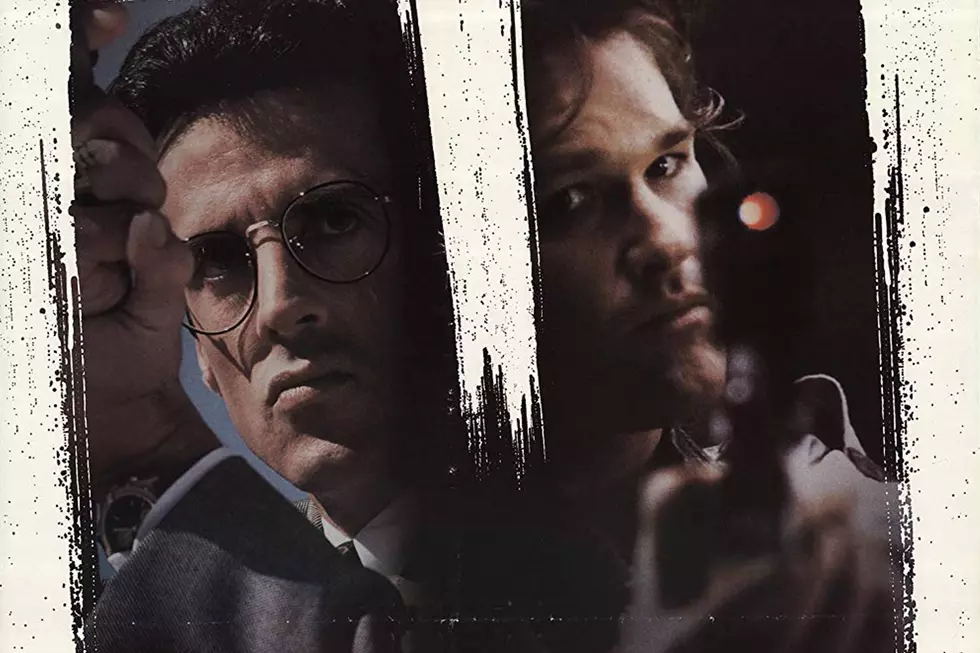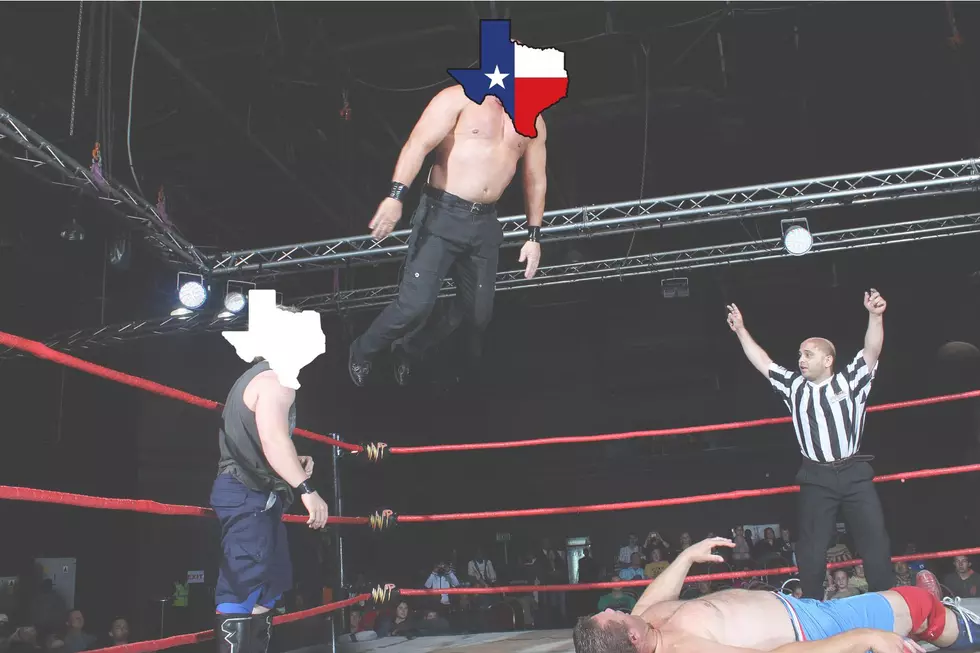
30 Years Ago: Stallone and Russell’s Ludicrous ‘Tango & Cash’ Just Misses Cult Classic Status
Tango & Cash comes tantalizingly close to being a cult classic, but somewhere along the way, the formula fell apart.
The film, celebrating its 30th anniversary on Dec. 22, has all the requisite elements one looks for in '80s guilty pleasures: Sylvester Stallone and Kurt Russell chewing up ridiculous dialogue, an over-the-top bad guy played with epic glee by Jack Palance, and one scene after another that come off as either absurdist parodies or unintentional misfires, sometimes both at once. If it were more self-aware, more earnest, more satirical or more serious, the movie would land on all kinds of hidden gems lists. But it's not. In the end, Tango & Cash never manages to become more than a delightful oddity that should probably be better remembered than it is.
The story of the film's production is as captivating and strange as its plot. The idea was hatched by producing super-team John Peters (onetime hairdresser and paramour of Barbara Streisand; current owner of the rights to the Superman franchise) and Peter Gruber (all-around Hollywood titan and part owner of the Golden State Warriors and Los Angeles Dodgers.) They hired a relatively unknown screenwriter named Randy Feldman to put together a script, then chose Russian-born Andrei Konchalovsky to direct. The first choice was a good one, as the screenplay has some sparkling moments; the second choice, however, only seemed to complicate things.
Konchalovsky cut his teeth in the high-art world of Soviet cinema, making realist films out of stories by Anton Chekhov and co-writing Andrei Tarkovsky's Andrei Rublev, a three-hour film that tells the story of an icon-painter in 15th century Russia. It's regarded as one of the greatest films of the 20th Century, but hardly what one would call a buddy-cop masterpiece.
When he came to America in 1980, Konchalovsky made a romantic drama called Maria's Lovers staring Nastassja Kinski and Robert Michum, and then an independently financed existential thriller called Runaway Train staring Eric Roberts and Jon Voight, based on a screenplay by legendary Japanese filmmaker Akira Kurosawa. It's a strange and in places affecting film, but again not one that would give a producer confidence that Konchalovsky could direct a comedic romp about a high-class cop and a low-class cop doing battle with a bad guy who's obsessed with mice. Which is the basic plot of Tango & Cash.
Once filming got started, the suspect decisions continued. The eminently talented Barry Sonenfield – who shot everything from Raising Arizona to Big to Misery – was hired as the cinematographer only to be summarily fired by Stallone and replaced by the man, Donald E. Thorin, who had filmed Stallone's last movie. This presaged what seems in retrospect to be an unavoidable battle over the tone of the film. The Russian art-film director Konchalovsky and the micro-managing and self-serious Stallone wanted the film to be hard-hitting and gritty; the greenbacks-obsessed producer Peters wanted it to be a goofy and satirical blockbuster.
Peters won. Konchalovsky was fired. Albert Magnoli, who had made Prince's Purple Rain, was brought in to direct; he was either assisted or hampered in his efforts, depending on who's telling the story, by second-unit director Peter MacDonald, editor Stuart Baird, and by Stallone himself.
Unsurprisingly, the result of all of this is something that doesn't feel like a single coherent film so much as a death match between four or five very different ones.
Stallone plays a rich cop, Ray Tango, who wears Armani suits and has made so much money in the stock market that he only does police work for the adrenaline of it. Russel plays Gabe Cash, who's poor and wisecracking and doesn't seem to own a single shirt that is not ripped. Palance plays the bad guy, Yves Perret, who has had a small maze built into the glass-topped bar in his hideout, apparently for the sole purpose of putting mice in it to demonstrate what's going to happen to his nemeses Tango and Cash. Brion James – maybe best known for his role as Leon in Blade Runner – plays an evil henchman with a cockney accent, Geoffrey Lewis – widely rumored to have appeared in every film made in the 1980s – plays Tango's hard-nosed captain, and Teri Hatcher plays Tango's sister, and Cash's love interest, Kiki.
The film swings wildly through bouts of referential parody and overly serious drama. In the opening moments Stallone shoots out the windshield of a semi truck with a tiny pistol, causing it to skid to a stop so hard that the bad guys riding in it fly through the windshield (a sequence lifted directly from Jackie Chan's 1985 Police Story). When another cop asks if he thinks he's Rambo or something, Stallone drools: "Rambo's a pussy."
Moments later, Tango and Cash are framed for killing a federal officer, and sent to prison. For some inexplicable reason, they're given an empty locker room in which to take a shower together and, wet and lathered, start making jokes about dropping the soap. This is followed by a much more serious scene in which they're captured by vengeful prisoners and tortured (in a sequence lifted directly from Richard Donner's 1987 Lethal Weapon.) In one of the film's most inspired gestures, Yves Perret and his cockney henchman break into the prison so they can watch this torture.
Unfortunately for the bad guys, no prison has ever been built that can hold Tango and Cash. They escape and separate, both trying to figure out who framed them. Tango does some high-class police work; Cash goes to the strip club where Tango's sister works, meets her, and has to dress up as a woman to escape. This scene, featuring Russel in full drag, is perhaps the film's finest moment; along with the continually bananas dialogue, it could have elevated the proceedings into the realm of high comedic art.
Regrettably, it's followed by a sequence in which Tango and Cash go to the workshop of the mysterious weapons designer for the LAPD – who knew until now that there was such a thing? – get a cheesy assault-truck and use it to attack Perret's hideout. The action sequence that follows is an incoherent catastrophe of explosions, men firing various sorts of guns, and monster trucks all narrated by Palance, who's watching on a series of screens.
With this finale, Tango and Cash win, the bad guys are killed, and the city of Los Angeles is saved. Our cops high-five in victory.
As the '80s faded away, the buddy-cop film would go out of fashion. Stallone would continue making mediocre movies, Russell would become perhaps the most underrated star of his era.
Had things broken differently, Tango & Cash could have been a high point in both careers, a raucous flick that both mocked and exemplified everything that was good about the 1980s action flick. And perhaps there's still a chance. As of this writing, Stallone is making noise about wrangling Russell into a sequel. If at first you don't succeed...
25 '80s Movie Sequels That Shouldn't Have Been Made
More From KKTX FM










